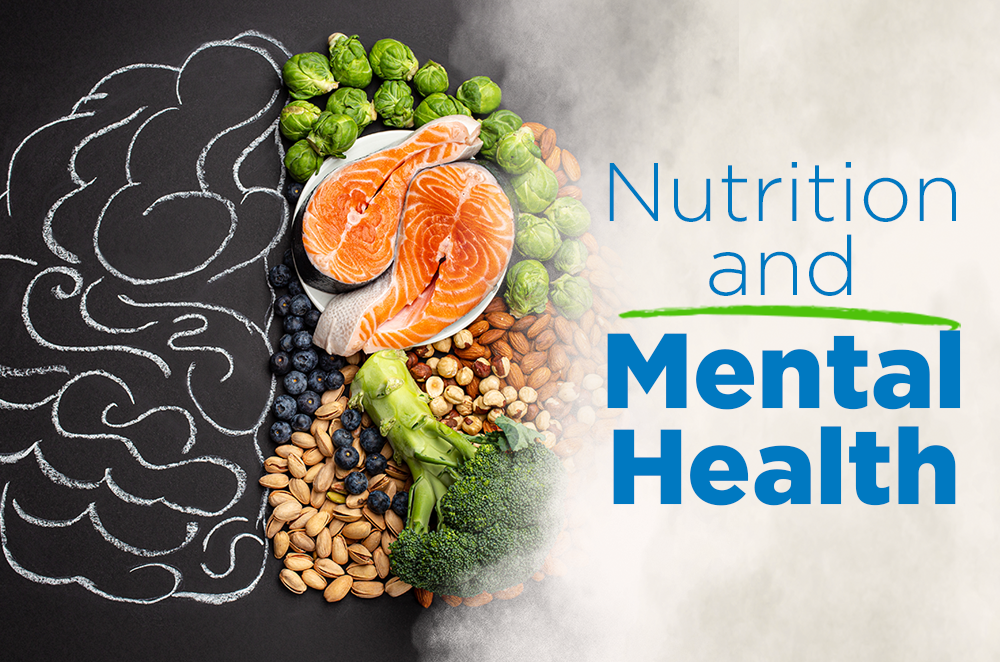When discussing mental health, we often focus on therapy, medication, and psychological interventions. However, nutrition is a crucial yet frequently overlooked factor that impacts mental well-being. The food we eat plays a significant role in brain health, mood regulation, and cognitive function. In this blog, we explore how nutrition affects mental health and offer tips for those living in Mumbai, where lifestyle and dietary choices can significantly influence overall wellness.
The Connection Between Nutrition and Mental Health
Research has shown that certain nutrients are vital for optimal brain function. Deficiencies in key vitamins and minerals can increase the risk of mental health issues like anxiety, depression, and cognitive decline. Additionally, the foods we consume can affect neurotransmitters—chemical messengers in the brain responsible for regulating mood, stress, and cognition.
Key Nutrients for Mental Health
Omega-3 Fatty Acids: These healthy fats, found in fatty fish like salmon and mackerel, are critical for brain health. Omega-3s help reduce symptoms of depression and anxiety by supporting neurotransmitter function.
B Vitamins: B6, B12, and folate are crucial for healthy nerve function and mental clarity. Deficiency in these vitamins has been linked to depression and cognitive decline.
Magnesium: This mineral is vital for nerve function and can help reduce anxiety. Magnesium-rich foods like spinach, almonds, and black beans are excellent for mood stability.
Vitamin D: Known as the “sunshine vitamin,” vitamin D helps regulate mood. Low levels have been associated with depression. In sunny Mumbai, regular sunlight can help boost vitamin D levels.
Antioxidants: Foods rich in antioxidants, such as berries, leafy greens, and nuts, protect the brain from oxidative stress, which can damage brain cells and contribute to mental health issues.
Tips for Enhancing Mental Health Through Nutrition in Mumbai
Mumbai’s fast-paced lifestyle can make it challenging to maintain healthy eating habits, but small adjustments can make a big difference to mental well-being.
Incorporate More Fresh Fruits and Vegetables: Mumbai’s markets are full of fresh produce, from leafy greens to vibrant fruits. Including a variety of colorful fruits and vegetables ensures you’re getting a wide range of nutrients for both physical and mental health.
Choose Whole Grains Over Refined Carbs: Refined carbs like white bread and sugary snacks are quick and easy, but whole grains like brown rice, quinoa, and oats are better for both energy and mood. These foods provide a steady release of glucose, helping maintain stable mood levels throughout the day.
Stay Hydrated: Dehydration can lead to fatigue and irritability. Mumbai’s warm climate makes hydration especially important. Aim for at least 8 glasses of water daily, and consider herbal teas to stay refreshed.
Mind Your Gut Health: The connection between gut health and mental well-being is well-established. Fermented foods like yogurt, kimchi, and kefir promote healthy digestion, while fiber-rich foods like lentils, chickpeas, and vegetables keep your gut in balance.
Limit Processed Foods: The convenience of processed foods can be tempting in a busy city like Mumbai, but these foods—rich in sugar, unhealthy fats, and artificial additives—can negatively affect mental health. Focus on nutrient-dense, whole foods that support brain function.
The Role of Experts in Mumbai
Mumbai is home to numerous nutritionists, dieticians, and mental health professionals who recognize the significant role diet plays in mental health. Working with experts can help you develop a personalized eating plan that meets your unique needs. Nutritionists in Mumbai can guide you in choosing local food options that are both culturally familiar and nutritionally beneficial. Collaborating with mental health professionals can also help you understand how dietary changes can complement other therapeutic treatments.
Conclusion
Nutrition is a key player in mental health. Whether you’re managing stress, anxiety, or depression, mindful dietary choices can significantly enhance your mental well-being. By focusing on nutrient-rich foods, staying hydrated, and limiting processed foods, you can improve your mood and cognitive function. For those living in Mumbai, local experts can offer tailored advice to help integrate the city’s vibrant food culture into a diet that supports both body and mind.
Remember, mental health is a journey. With the right nutrition, you can equip yourself with an essential tool for maintaining a healthy mind.







